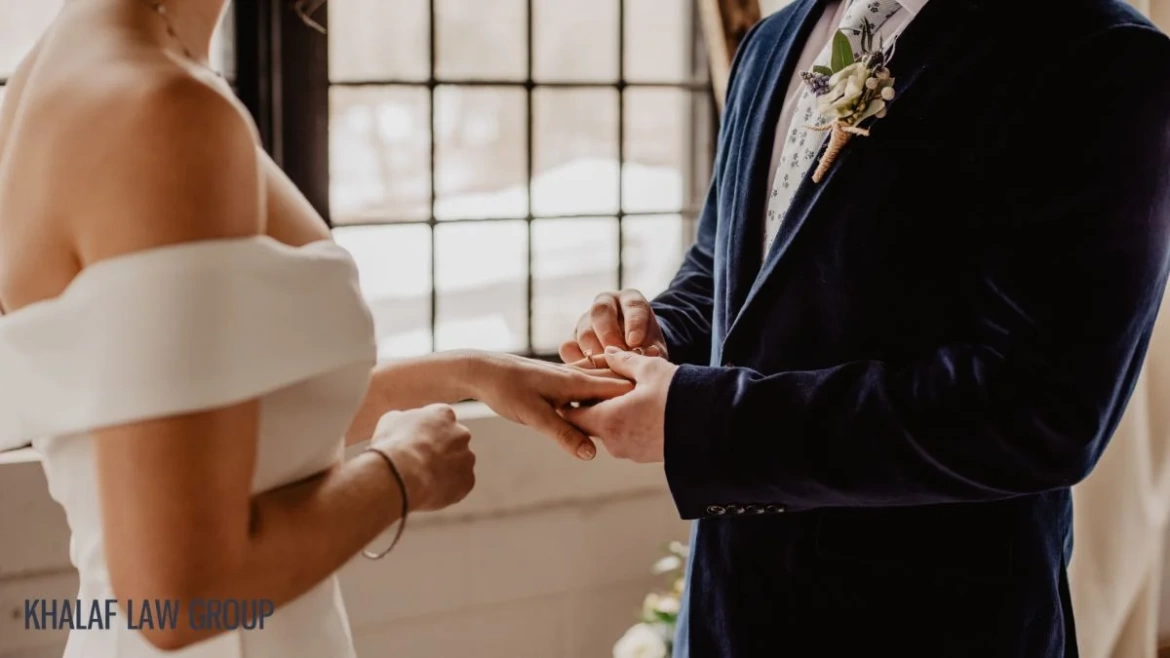The institution of marriage has been around for as long as we’ve had civilizations, but modern laws require that certain elements be present for a marriage to be considered valid. Couples who enter into an invalid marriage may find that they do not have certain rights and protections under the law. Many wonder what constitutes a valid marriage in Pasadena. Some elements of marriage are fairly obvious while others may come as a surprise.
What Elements Must Be Present for a Marriage to be Valid?
Many marriages in California have two components: a religious service and the signing of a state marriage license. The religious ceremony, while widely viewed as the act that creates the union, is not sufficient to make a marriage valid in the eyes of the state. In order to enjoy the full rights and protections afforded by marriage under state law, a valid marriage license must also be signed and filed with the state.
Many county clerk offices also perform civil marriage ceremonies. The combination of marriage license and ceremony is sufficient to create a valid marriage. Many non-religious couples choose this option.
Both Parties Consent
Certain elements must be present for a marriage to be considered valid. Both parties have to consent to the marriage, and there should be a solemnization and authentication portion as part of the issuance of the license. A record should be made in the county where the marriage took place.
Solemnization Process
Generally, the couple must appear before a representative of the county clerk. The solemnization process that typically involves both parties saying vows and other traditional pledges can be officiated by any number of authorized persons that can include a:
- Rabbi
- Priest
- Judge
- Court Commissioner
- Any elected official
- Mayor
- Imam
There does not need to be a religious ceremony to be legally married in California. You will, however, need to have at least one witness present who signs the marriage license. After the county clerk solemnization, the person who officiated the marriage must turn in the license within 10 days to the county where the license was issued.
Common Law Marriage
Unlike some other states, California does not recognize common-law marriages. These are unions that other states recognize as marriage once two people live together for a set period of time. In states where common-law marriage is recognized, acting like a married couple for several years is enough to bestow state privileges on that couple. The one exception in California is when a couple is married under common law in another state.
Polygamous Marriage
Under no circumstance will California recognize a polygamous marriage. California does recognize single-partner marriages from foreign countries but not marriages involving more than one partner, even from countries that recognize polygamy. Any marriage that involves incest will not be valid in California, and only a valid marriage can be used as the basis for future family court orders.
Mental Capacity
Both parties entering into a marriage union must have the mental capacity to do so. In practical terms, this means that both parties are sober and in full control of their mental capacities at the time of marriage. Individuals with certain intellectual disabilities may be seen as not mentally capable of agreeing to marriage.
Age and Other Factors
Age is another factor. Anyone under 18 must petition the court for permission to marry. If either or both parties are minors, they must receive permission from a judge before being allowed to marry. Although many women choose to do so, neither party is required to change their name upon marrying. Any change in name cannot be done for fraudulent reasons, such as to escape paying a debt.
Marriage cannot be by proxy, meaning that both parties must be present when seeking a marriage license. The witnesses must also be physically present. Other requirements for marriage include a valid picture identification. Some counties may further require a copy of the birth certificate.
If either party was married before, they will need to provide the date that the previous marriage ended. Some counties may require proof of divorce.
FAQs
Q: What Is Considered a Legal Marriage in California?
A: Legal marriage requires that two consenting adults (or minors with the court’s permission) who are not family and not currently married obtain a marriage license and undergo a marriage ceremony. California does not acknowledge polygamous marriages or common-law marriages. Both parties must be of sound mind, and they must both consent to the marriage.
Q: What Constitutes a Valid Marriage?
A: To be a valid marriage, both parties must consent to the marriage and meet state requirements. Consent alone does not make a marriage valid in California. Both parties must obtain a marriage license from the state. This is usually done at the county level through the county clerk’s office. At least one witness must be present for the signing of the marriage license to be valid.
Q: Do You Need a Permit to Get Married at Pasadena City Hall?
A: Small weddings at Pasadena City Hall do not require a permit. Large weddings will require a permit in order to reserve space. You can have your religious marriage service performed anywhere you wish as long as you also obtain a valid marriage license from the state. You must have one witness who signs the marriage license.
Q: Does California Recognize Religious Marriage?
A: Religious marriages in California are commonplace, but a religious ceremony without the signing of a marriage license around the same time does not constitute a valid marriage in California. Only a marriage license bestows important state rights and protections for married couples. Your family law attorney can support you in many legal areas, as well as provide clarification on what constitutes a valid marriage in California.
Schedule Your Pasadena Marriage Consultation Today
Only a valid marriage license from California means that you are married. Undergoing a religious ceremony alone does not mean that you have rights and privileges under state law. If you have questions about the marriage process, Khalaf Law Group can gladly provide you with sound legal counsel. Contact our office today to schedule your consultation.



